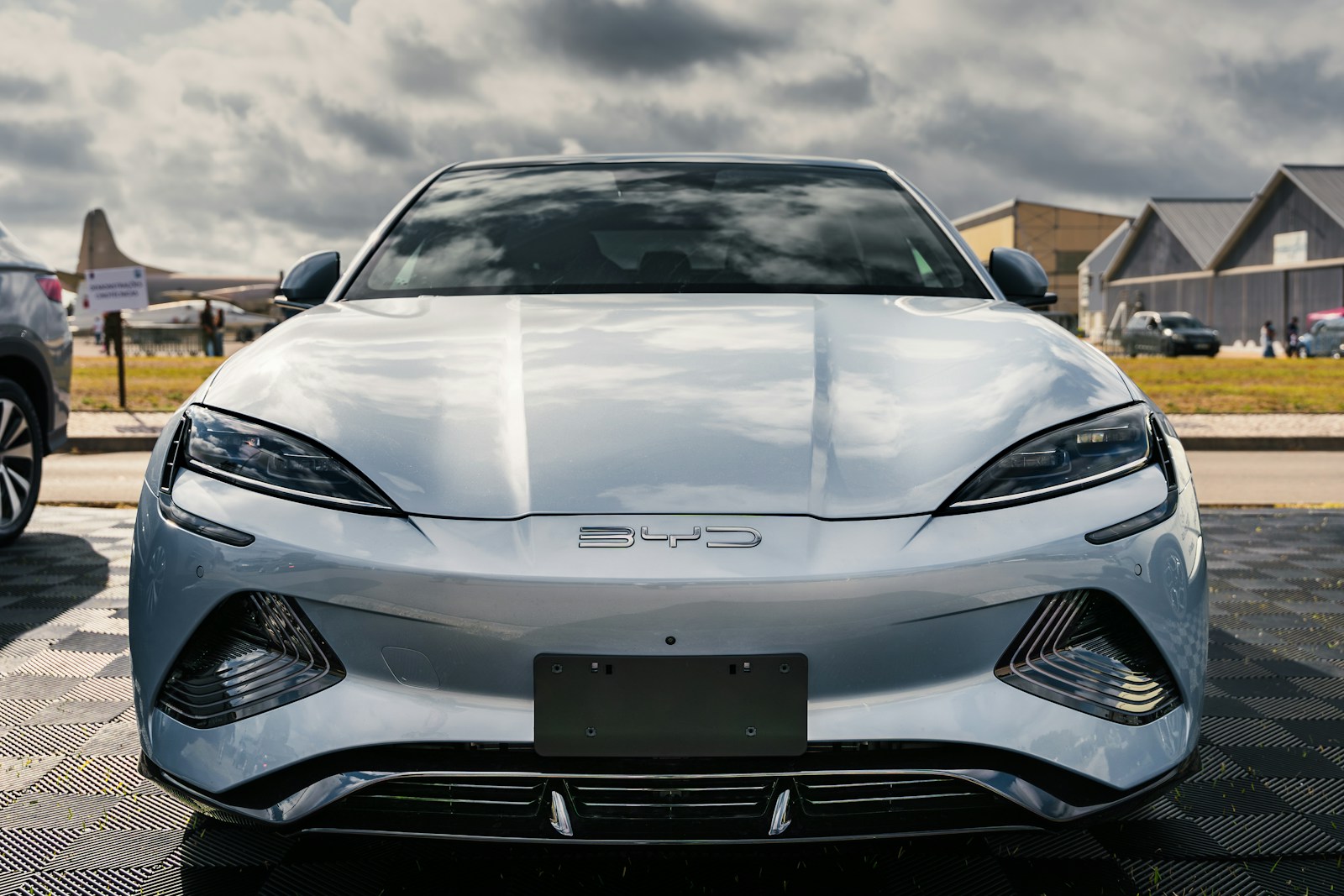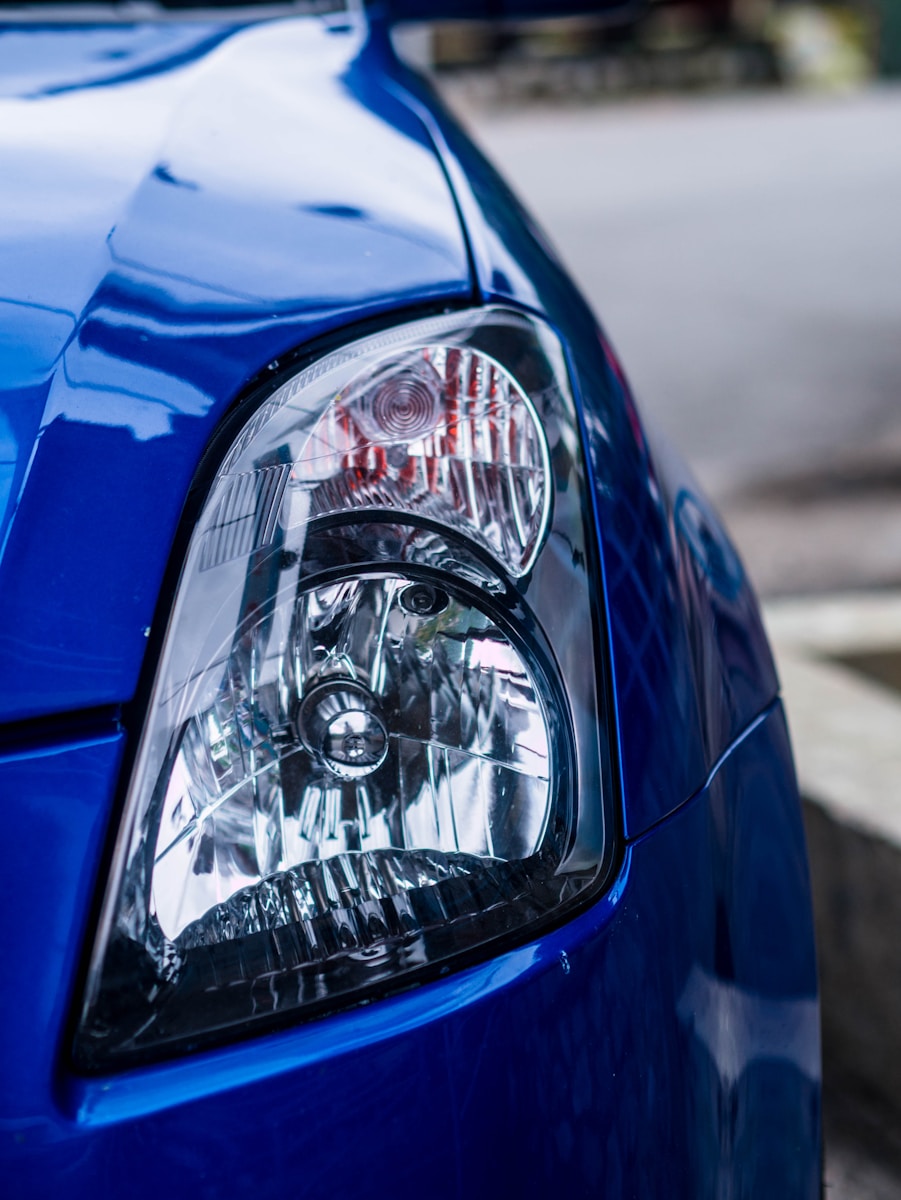BYD’s Electric Ascent: How the Chinese EV Giant Captured the UK Market with 880% Sales Surge
In an extraordinary display of market penetration, Chinese electric vehicle giant BYD has reported an astounding 880% year-on-year sales increase in the United Kingdom for September 2025, selling 11,271 vehicles in a single month.
This remarkable growth has transformed the UK into BYD’s largest market outside China, representing a significant milestone in the global EV landscape. The company’s success story in Britain is particularly noteworthy given that it has achieved these figures despite being excluded from the UK government’s electric car grant scheme, demonstrating the powerful appeal of its affordable pricing and strategic market expansion.
This article examines the factors behind BYD’s unprecedented UK success, the models driving this growth, and the implications for the broader European electric vehicle market.
Stunning Sales Performance: BYD’s UK Meteoric Rise
Record-Breaking Monthly and Quarterly Achievements
- September 2025 Spectacular: BYD’s 11,271 vehicle sales in September represents not only an 880% increase compared to the same month last year but also stands as the company’s most successful sales month ever in the UK market . This single-month performance was so strong that it fundamentally altered BYD’s global market distribution, elevating the UK to become BYD’s premier international market outside China.
- Quarterly Acceleration: The third quarter of 2025 saw BYD sell over 16,000 vehicles in the UK, a significant jump from the 10,000 units sold in the second quarter . This progressive quarterly improvement demonstrates consistent growth momentum rather than a one-month anomaly.
- Year-to-Domain Performance: With over 35,000 vehicles sold in 2025 already , BYD has dramatically exceeded its previous annual performance. In fact, the company sold more vehicles in the first quarter of 2025 alone (9,271 units) than in the entirety of 2024 (8,787 units) , representing a 625% growth compared to Q1 2024.
Market Share Expansion
BYD’s dramatic sales growth has naturally translated into substantial gains in UK market share. The company’s market share reached 3.6% in September 2025 alone , while its year-to-date market share stands at 2.2% . This represents a remarkable ascent for a brand that only entered the UK passenger car market in March 2023 . From a modest 0.45% market share in 2024, BYD has rapidly climbed to claim 1.6% of the UK market in Q1 2025 , establishing itself as the UK’s fastest-growing car brand .
| Metric | September 2025 | Q3 2025 | 2025 Year-to-Date | Q1 2025 vs Q1 2024 |
|---|---|---|---|---|
| Sales Volume | 11,271 units | >16,000 units | >35,000 units | 9,271 vs. unknown previous |
| Growth Rate | 880% YoY | Significant increase from Q2’s 10,000 units | N/A | 625% increase |
| Market Share | 3.6% | N/A | 2.2% | Increased from 0.45% in 2024 to 1.6% |
The Models Driving BYD’s UK Success
SEAL U DM-i: The Uncontested Leader
The plug-in hybrid version of the SEAL U sports utility vehicle (SUV) has emerged as BYD’s standout performer in the UK market, accounting for the majority of the brand’s September sales . This model has proven exceptionally popular among British consumers, with 7,524 units sold between July and September 2025 alone . The SEAL U DM-i has so dominated its category that it has become the UK’s best-selling plug-in hybrid vehicle year-to-date , an impressive achievement for a relatively new entrant in a competitive market.
The SEAL U DM-i features BYD’s innovative dual-mode hybrid technology, which allows for efficient electric-only driving for daily commutes while eliminating range anxiety through its hybrid capability . This technological solution appears to perfectly align with UK consumer preferences, bridging the gap between conventional vehicles and fully electric options.
Supporting Cast: SEALION 7 and Other Models
- SEALION 7: The all-electric SEALION 7 has also contributed significantly to BYD’s UK success, with 2,599 units sold in the third quarter of 2025 . Based on BYD’s e-Platform 3.0 and utilizing the brand’s innovative Blade Battery technology, the SEALION 7 combines sporty performance with an SUV design and offers an all-electric range of up to 312 miles , addressing a key concern for potential EV adopters.
- BYD Dolphin: While not the volume leader, the BYD Dolphin starts at just over £26,000 in the UK , positioning it significantly below Tesla’s Model 3, which costs around £40,000 . This aggressive pricing strategy has helped BYD capture the more affordable segment of the EV market and appeal to price-sensitive British consumers.
- Model Diversity: BYD’s strategy of offering both pure electric and plug-in hybrid variants across different vehicle segments (compact cars, sedans, and SUVs) has allowed it to address varied consumer preferences and needs in the UK market, contributing to its overall strong performance.
BYD’s Winning Strategy in the UK Market
Affordable Pricing and Value Proposition
BYD’s core competitive advantage in the UK stems from its aggressive pricing strategy that undercuts established Western rivals. The company has leveraged its expertise in battery technology (it began as a battery manufacturer in 1994) to create more affordable EVs without compromising on range or features . With the Dolphin model starting at just over £26,000 compared to Tesla’s Model 3 at around £40,000 , BYD has positioned itself as the value leader in the UK EV market. This price advantage makes electric vehicles accessible to a broader segment of British consumers who might otherwise hesitate to make the switch from conventional vehicles due to cost concerns.
Strategic Infrastructure and Retail Expansion
Beyond competitive pricing, BYD has made significant investments in its UK presence:
- Retail Network: The company has opened its 100th retail outlet in the UK , creating a substantial physical presence and ensuring British consumers have access to sales and service support. This expanding dealership network has been crucial in building consumer confidence and brand awareness.
- Battery Service Infrastructure: BYD recently opened a dedicated Battery Service Centre in Milton Keynes , initially focusing on electric bus batteries but demonstrating the company’s long-term commitment to the UK market. With over 2,450 BYD buses already in operation nationwide, including 84% of the electric buses in service in London , this infrastructure investment supports both their commercial and passenger vehicle segments.
- Industrial Footprint: BYD’s existing commercial vehicle operations in the UK, which began with electric buses in 2014, provided an established foundation for their passenger vehicle entry . The company has also provided 1.8GWh of battery energy storage to the UK’s national grid since 2016 , further embedding itself within the country’s energy ecosystem.
Brand Building and Market Adaptation
BYD has demonstrated sophisticated brand-building capabilities in the UK market. The company’s UK country manager, Bono Ge, credited the sales success to “the tireless work of our team and retailer partners” in spreading awareness about the BYD brand across the country . Rather than relying solely on price competition, BYD has emphasized its technological innovations, including its Blade Battery platform and hybrid systems, to position itself as a high-tech yet accessible brand. The company’s ability to identify and cater to British consumer preferences—such as the strong demand for SUV models—has been pivotal to its outperformance.
The UK Market Context: Why Britain?
Favorable Tariff Environment
A crucial factor in BYD’s UK success is Britain’s post-Brexit trade policy, which has not imposed tariffs on Chinese EVs, unlike other major markets such as the European Union and the United States . The EU has implemented levies of up to 45% on Chinese EV imports , while the US has maintained high tariffs that effectively shut out Chinese manufacturers . This tariff differential has made the UK particularly attractive for Chinese EV makers like BYD, providing a competitive price advantage that might be difficult to replicate in other Western markets.
Broader UK EV Market Dynamics
BYD’s spectacular growth coincides with a wider surge in British electric vehicle adoption. September 2025 saw battery electric vehicle sales rise by 29.1% year-on-year to 72,779 units , following the reintroduction of an electric car grant in July designed to make EVs more affordable for consumers . Interestingly, this government scheme excluded Chinese-made vehicles due to emissions produced in their manufacturing process , making BYD’s success despite this exclusion even more remarkable.
The UK government has allocated £650 million of discounts for car buyers in a bid to boost EV adoption , though these subsidies are not available for Chinese-made vehicles. This policy environment creates an interesting dynamic where BYD is succeeding purely on product merit and price competitiveness rather than government incentives, suggesting a fundamentally strong market position.
| Market | Regulatory Environment | BYD Performance | Key Challenges |
|---|---|---|---|
| United Kingdom | No tariffs on Chinese EVs | 880% YoY growth in Sept 2025 | Exclusion from government EV grants |
| European Union | Tariffs of up to 45% on Chinese EVs | Sales up >200% YoY as of August | Protectionist measures to shield EU manufacturers |
| United States | Effectively shut out by high tariffs | Minimal presence | Effectively blocked from market |
| China (Domestic) | Supportive but competitive | First YoY decline in deliveries in 2025 | Market saturation and intense competition |
Challenges and Controversies
Exclusion from UK Government Grants
Despite its commercial success, BYD faces significant headwinds in UK policy. The British government’s £650 million Electric Car Grant Program, launched in July 2025, specifically excludes Chinese-made vehicles due to emissions produced in their manufacturing process . This means that while buyers of European-made EVs can receive subsidies of up to £3,750 , BYD customers do not benefit from these incentives.
BYD has been openly critical of this policy. Executive VP Stella Li told the Financial Times that the subsidy “does not make any sense” and compared it to a “drug” that creates dependency . The company argues that such protectionist measures will damage the UK’s car market in the long-term by limiting competition and consumer choice.
Global and Domestic Headwinds
BYD’s UK success story unfolds against a backdrop of challenges in other markets:
- Global Sales Adjustment: The company recently reduced its sales target for 2025 by up to 16% to 4.6 million vehicles , reflecting a more conservative outlook amid global economic uncertainties.
- Domestic Slowdown: BYD reported its first year-on-year decline in deliveries in 2025, with a drop of almost 6% , though its domestic market share remains strong . This highlights the importance of international expansion for BYD’s continued growth.
- Stock Market Reaction: Despite the positive UK sales news, BYD’s stock price fell 1.3% in Hong Kong on the day of the announcement , suggesting investor concerns about broader challenges outweighing regional successes.
Future Outlook and Strategic Implications
BYD’s Continued UK Expansion
BYD shows no signs of slowing its UK offensive. The company has announced plans to launch more new hybrid and electric cars in the coming months , suggesting a continued product onslaught aimed at consolidating its market position. BYD’s UK manager Bono Ge has stated that the brand’s future in Britain looks “hugely exciting” , particularly as the retail network continues to expand beyond the recently opened 100th outlet.
The company’s ability to achieve such significant growth without government subsidies positions it well for sustainable long-term success in the UK market. If BYD can maintain its price leadership while continuing to expand its model offerings and service network, it has the potential to move from being a disruptive newcomer to an established mainstream player in the UK automotive landscape.
European Strategic Position
The UK success forms part of BYD’s broader European strategy, where the company has seen sales increase by over 200% year-on-year as of August 2025, surpassing Tesla, which saw a 36% decline in the same period . This European expansion is particularly significant as BYD diversifies beyond its domestic Chinese market, where growth has slowed due to increasing saturation and competition.
BYD’s UK achievements demonstrate that Chinese EV manufacturers can not only enter but dominate segments of the European automotive market, traditionally a stronghold of German, Japanese, and American manufacturers. The company’s integrated supply chain—from battery production to vehicle manufacturing—provides a cost advantage that established European manufacturers may struggle to match, particularly in the volume segments of the market.
Redefining the Global EV Landscape
BYD’s extraordinary 880% sales surge in the UK represents more than just a corporate success story—it signals a fundamental shift in the global electric vehicle industry. The company has demonstrated that Chinese EV manufacturers can achieve dominant positions in sophisticated Western markets, even when facing policy headwinds and exclusion from government incentive programs.
BYD’s UK breakthrough rests on a powerful combination of affordable pricing, strategic infrastructure investment, and product offerings tailored to local consumer preferences. As the UK becomes BYD’s largest market outside China, it serves as both a showcase for the company’s global ambitions and a warning to established Western manufacturers about the intensifying competition in the electric vehicle space.
The coming months will be crucial as BYD seeks to consolidate its UK gains while navigating an increasingly complex global trade environment. If the company can maintain its current trajectory, it may well redefine not just Britain’s automotive market but the entire European EV landscape in the years ahead.






